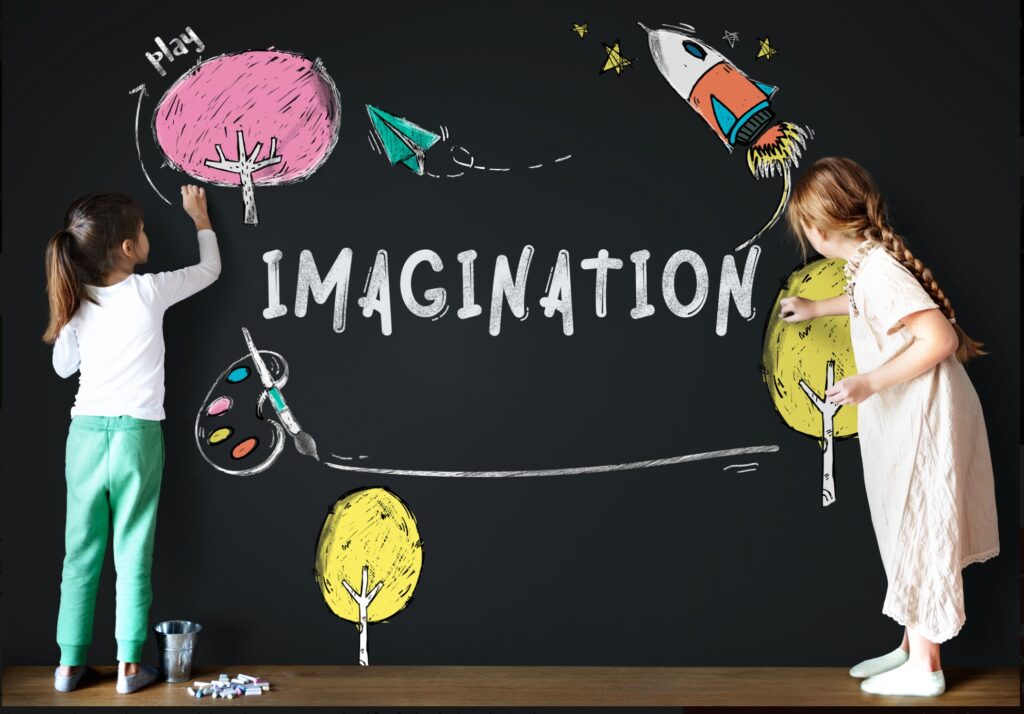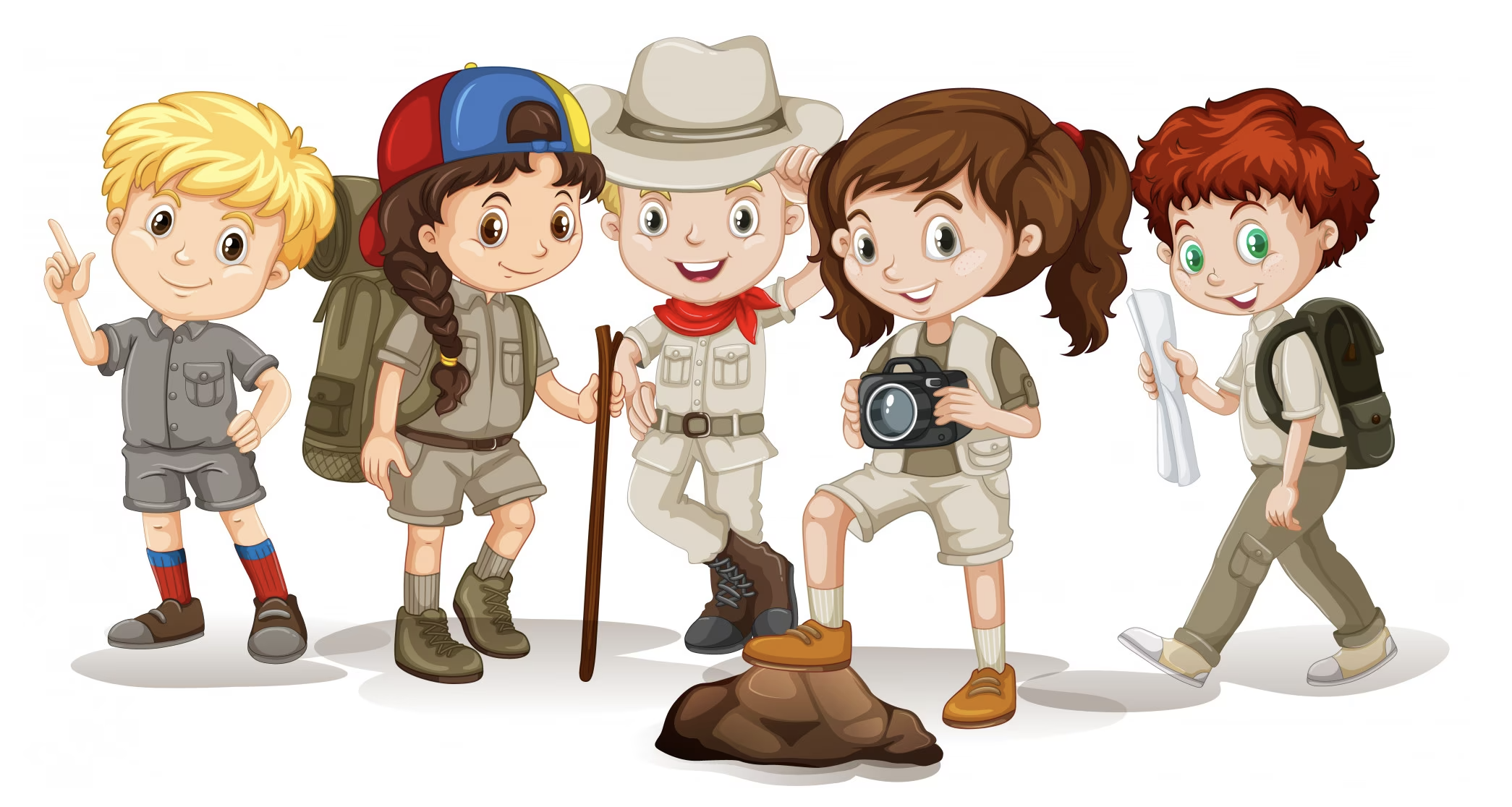
The act of playing is a fundamental aspect of childhood that transcends cultural boundaries and time. Children’s play has the power to ignite their imagination, fuel creativity, and foster essential cognitive and social skills. Toys are the tools that facilitate this journey, providing the means to venture into limitless worlds of make-believe and exploration.
The Wonder of Play
- The Essence of Play: Play is not just a leisurely activity; it is a dynamic process that allows children to explore, learn, and grow. Whether it’s building with blocks, dressing up as a superhero, or embarking on a tea party with stuffed animals, play is the vehicle through which imagination can thrive.
- The Imaginative Mind: Imagination is the driving force behind play, enabling children to invent scenarios, create characters, and manipulate the world around them in ways that make sense to them. It is the spark that ignites their curiosity.
- The Benefits of Play: Play isn’t just fun; it’s also crucial for children’s development. Through play, children learn problem-solving, language and communication skills, emotional regulation, and social interaction, all of which are essential for their well-being.
Toys as Catalysts for Imagination
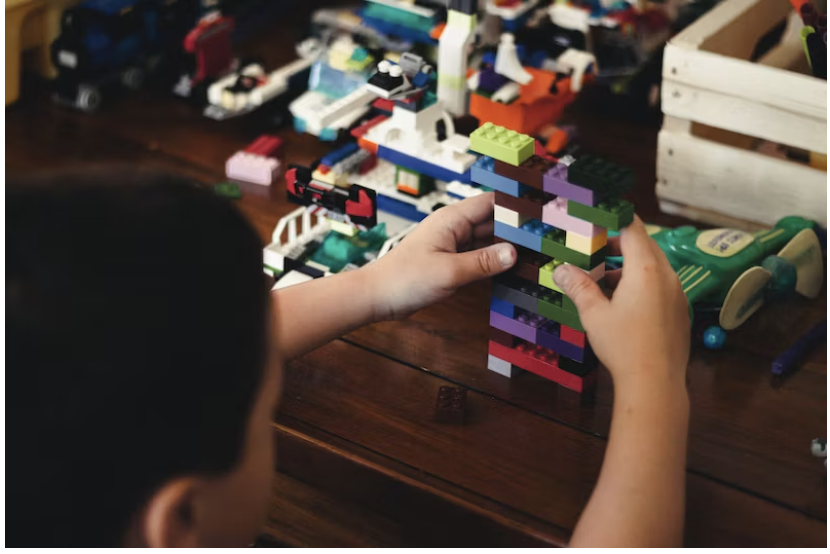
- The Diversity of Toys: Toys come in various forms, from action figures to building blocks, from dolls to board games. Each type of toy offers unique opportunities for children to explore their imagination.
- Open-Ended Toys: Toys that lack a prescribed purpose, such as building blocks or art supplies, encourage open-ended play. They allow children to decide how to use them, giving full rein to their creativity.
- Narrative Play: Toys like action figures, dolls, and playsets foster narrative play, where children create storylines and scenarios, bringing characters to life through dialogue and action.
- Constructive Play: Building toys, like LEGO sets, challenge children to design and build structures, promoting problem-solving and spatial awareness.
The Magic of Children’s Imagination
- The Essence of Imagination: Imagination is an integral part of childhood, allowing children to envision possibilities, create stories, and explore the depths of their creativity.
- Unleashing Creativity: Imaginative play provides a safe space for children to unleash their creative potential. It’s a world where the ordinary becomes extraordinary, and the mundane transforms into magic.
- Cultivating Imagination: Parents, caregivers, and educators play a vital role in cultivating and nurturing children’s imagination. Encouraging open-ended play and providing the right tools can spark the flames of creativity.
- Pretend Play: Pretend play, also known as imaginative or make-believe play, is a cornerstone of childhood. Whether children are playing house, pirates, or astronauts, they immerse themselves in imaginative scenarios.
Pretend Play and Its Role in Development
- The Importance of Pretend Play: Pretend play, also known as imaginative or make-believe play, is vital to child development. It’s a type of play where children mimic and act out scenarios from everyday life or create entirely new ones. A child’s creativity and active imagination are great ways to learn problem-solving skills, understanding of everyday situations, and decision-making skills. Fantasy play and Imaginary play create new experiences, give children the safety to tell their own stories, and play with different characters. This is a great way to enhance and progress children’s imaginations.
Imaginative Play Scenarios
- Developmental Benefits: Pretend play isn’t just fun; it also offers significant developmental benefits. Cognitive skills, language development, and emotional understanding are enhanced through pretend play. It fosters creativity, problem-solving, and social interaction.
- Exploring Different Roles: Children engage in various roles during imaginative play, from parents and teachers to superheroes and explorers. This allows them to understand different perspectives and develop empathy.
The Role of Play and Imagination in Child Development
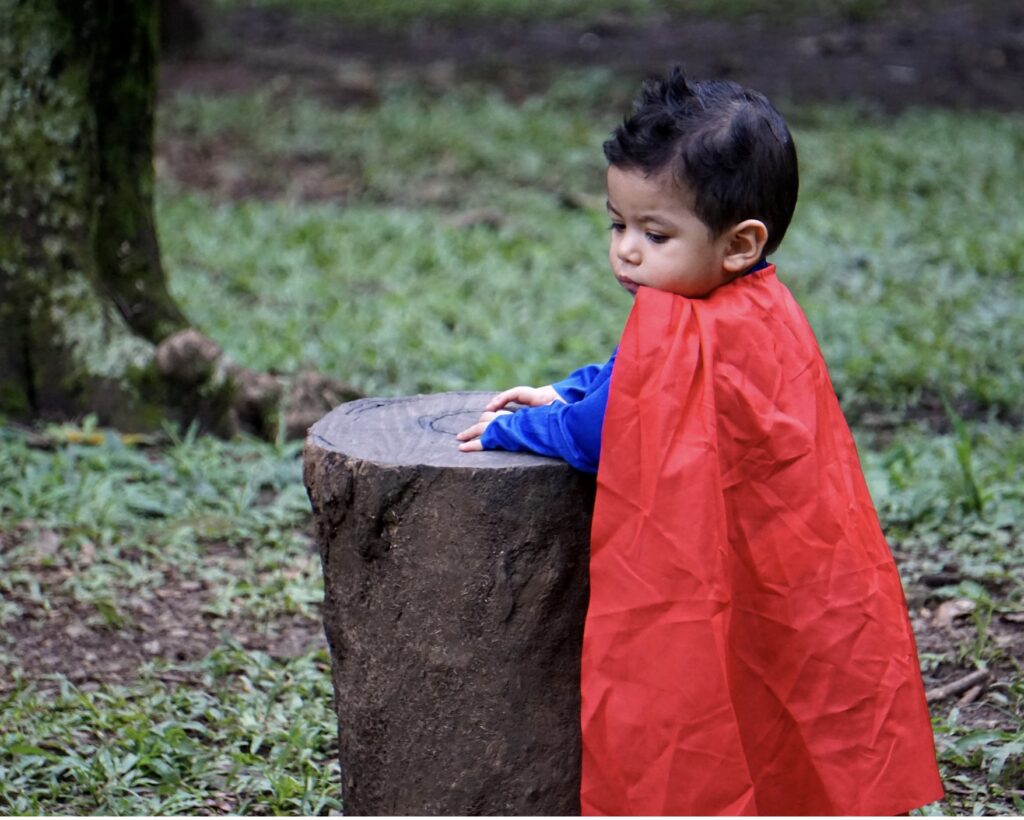
- Empathy and Communication: Imaginative play offers a platform for children to engage in social interactions, especially during early childhood. Through role-playing and interactive scenarios, children learn to cooperate, negotiate, and express themselves effectively, which contributes to the development of crucial social skills.
- Role Play and Empathy: Role play during imaginative scenarios encourages children to step into the shoes of different characters, experiencing the world from various perspectives. This practice nurtures empathy, as children learn to appreciate diverse viewpoints and emotions, further enhancing their social development.
- Understanding Emotions: Early childhood is a pivotal time for emotional development. Imaginative play allows children to explore and understand complex emotions within the safety of their imaginary worlds. This exploration aids emotional regulation and the development of empathy, fostering healthier relationships with their peers.
Imaginative Play Scenarios
- House and Family: Children often enjoy playing house, mimicking daily life experiences and family interactions. This type of imaginative play helps them develop empathy and an understanding of social roles.
- Adventure and Exploration: Whether it’s exploring the jungles as a daring explorer, sailing the high seas as a pirate, or journeying through outer space as an astronaut, adventure play takes children to new realms and nurtures their curiosity.
- Fantasy and Magic: Enchanted forests, fairy tale castles, and mystical creatures populate the realms of fantasy and magic play. These imaginative scenarios help children grasp abstract concepts and spark their creative storytelling.
- Superheroes and Heroic Deeds: Children often gravitate towards superhero play, where they don capes and masks to save the day. This type of play encourages a sense of agency, moral decision-making, and understanding the concept of good versus evil.
The Role of Adults in Encouraging Imagination

- Co-Play: Interacting with children during playtime can significantly enhance their imaginative play. Whether pretending to be a customer in their imaginary grocery store or a fellow astronaut on a space mission, adults can foster creativity and bonding through co-play.
- Providing Space and Materials: Creating an environment conducive to imaginative play is crucial. A playroom or designated play area filled with a variety of toys and materials can be a wellspring of inspiration for children.
- Unstructured Time: Allowing children unstructured time for play is essential. Overscheduling and constant structured activities can hinder imaginative exploration.
The Lasting Impact of Imagination in Childhood
- Imagination as a Lifelong Skill: The imaginative skills cultivated in childhood continue to serve us throughout our lives. Imagination is not limited to play; it also fuels innovation, problem-solving, and creativity in adulthood.
- Artistic Expression: Imagination is the bedrock of artistic expression. Whether it’s painting, writing, acting, or music, the ability to envision something beyond the present is essential for creativity.
- Empathy and Understanding: Through imaginative play, children learn to understand and empathize with others. This ability to step into someone else’s shoes is a valuable skill in building meaningful relationships.
- Pretend Play or Imaginary Play Scenarios: Pretend play can encompass a wide range of scenarios, from mimicking family situations, like playing house or grocery store shoppers, to imaginative adventures, such as sailing a pirate ship or launching a rocket ship into space.
- Developmental Benefits: Pretend play offers numerous benefits for young children. It enhances their cognitive development, language skills, and fine motor skills. It also promotes creativity and critical thinking.
- The Role of Adults: Adults play a crucial role in facilitating pretend play. Providing children with props like dress-up clothes, cardboard boxes, or small cars can encourage them to engage in make-believe scenarios.
Cooperative Play and Conflict Resolution
- Cooperative Play: Cooperative play involves children working together to achieve a common goal or engage in shared imaginative scenarios. It fosters social development and teaches children how to collaborate and communicate effectively.
- Conflict Resolution: Imaginative play often involves conflicts and disagreements, which provide an opportunity for children to develop conflict resolution skills. They learn to negotiate, compromise, and find creative solutions to conflicts.
Technology and Imagination
- Digital Play: With the advent of technology, digital toys and games have become an integral part of children’s lives. While they offer unique opportunities for learning and play, it’s essential to strike a balance between screen time and traditional imaginative play.
- Screen Time: In the digital age, children have access to video games, apps, and other forms of screen-based entertainment. While these can be engaging and educational, they should be balanced with opportunities for imaginative play in the real world.
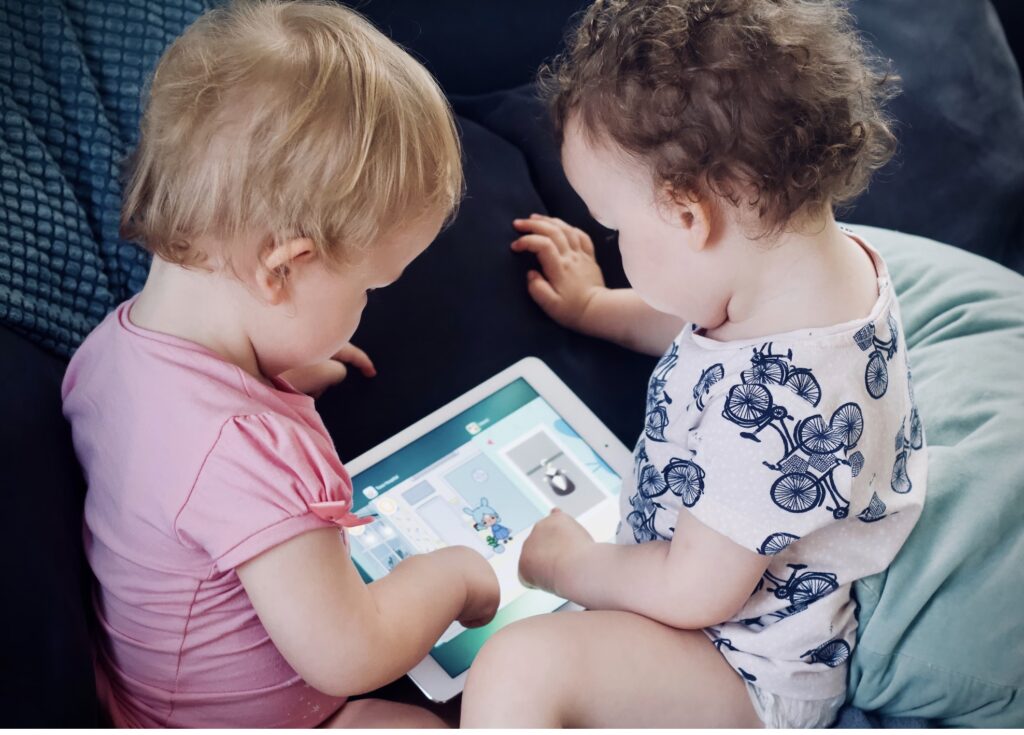
- Educational Apps and Games: Some digital apps and games are designed to promote learning and creativity. When used thoughtfully, they can be valuable tools in fostering imagination.
- Safeguarding Imagination: Parents and caregivers can ensure that children’s screen time does not replace imaginative play but complements it. Setting limits and monitoring content can help protect the role of imagination in play.
- Creative Potential: The digital age doesn’t have to hinder imagination; it can also enhance it. Many video games and apps encourage creative problem-solving and imaginative thinking.
- Parental Guidance: Parents and caregivers should play an active role in guiding children’s screen time, ensuring it doesn’t overshadow imaginative play but complements it in a healthy way.
The Lasting Impact of Imagination
- A Lifelong Skill: Imagination cultivated during childhood doesn’t fade away; it remains a vital skill throughout life. It fuels creativity, innovation, and the ability to see different perspectives.
- Empathy and Understanding: The ability to step into someone else’s shoes, honed through imaginative play, becomes a cornerstone for building meaningful relationships and understanding the world from different perspectives.
- Problem-Solving and Innovation: Imagination is the driving force behind problem-solving and innovation in various fields, from science and technology to the arts. It allows individuals to envision new ideas and creative solutions.
Imagination is the engine that drives the locomotive of childhood. It propels children through the realms of make-believe, adventure, and discovery, nurturing their cognitive and emotional development. Through the simple act of playing with toys, children not only entertain themselves but also build essential skills that lay the foundation for their future. As adults, our role is to nurture and safeguard the space for imagination to flourish, for it is in the world of the imagination that the seeds of a creative and innovative future are sown. By embracing and celebrating the power of imagination in play, we empower the next generation to envision and build a brighter tomorrow.
